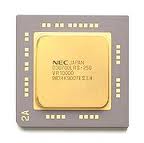I just bought a HP C8000 off of ebay (for dirt cheap, and more are still listed), and thus begins my journey into the mysterious world of PA-RISC. Came with a PA-8800 1GHz, ATI FireGL X1 (256MB), and 73+146GB Ultra320 disks.
(March 2011 edit--upgraded to 8x1GB DDR-266 from 8x512MB)

I had no idea these things are as large as they are, and they're shockingly silent given the fact that mine is pulling over 260W out of my wall just idling at login. Unfortunately the case is locked and I wasn't given the key, so I'll have to find some other way to open it up.
Code: Select all
Processors:
Active: 2
Total: 2
CPU Version: PA 8800 CPU Module 3.2
Clock Frequency: 1000 MHz
Machine Identification: 3662404977
Hardware Model: 9000/785/C8000
Kernel Width Support: 64
(March 2011 edit--upgraded to 8x1GB DDR-266 from 8x512MB)
Code: Select all
Physical Memory: 8197.3 MB
Real Memory:
Active: 293059.3 KB
Total: 368693.1 KB
Virtual Memory:
Active: 512265.4 KB
Total: 609681.1 KB
Free Memory Pages: 1456097 at 4 KB/page
Swap Space:
Avail: 4096 MB
Used: 419 MB
Code: Select all
0/2/1/0 mpt SCSI Ultra320 A6961-60011
0/2/1/1 mpt SCSI Ultra320 A6961-60011
0/3/1/0 hcd NEC USB Interface
0/3/1/1 hcd NEC USB Interface
0/3/1/2 ehci NEC USB Interface
0/3/2/0 side_ba CMD IDE controller
0/3/2/0.0 side IDE
0/3/2/0.1 side IDE
0/3/3/0 iether HP PCI 1000Base-T Built-in
0/4/0/0 gvid_core HP-UX Console Support for FireGL Graphics card
0/4/0/1 gvid_core HP-UX Console Support for FireGL Graphics card
17 asio0 Built-in RS-232 Interface
18 asio0 Built-in RS-232 Interface

I had no idea these things are as large as they are, and they're shockingly silent given the fact that mine is pulling over 260W out of my wall just idling at login. Unfortunately the case is locked and I wasn't given the key, so I'll have to find some other way to open it up.



 HP C8000, IBM RS/6000 43p 150, and lots of Suns in
HP C8000, IBM RS/6000 43p 150, and lots of Suns in










 (single-CM)
(single-CM)







